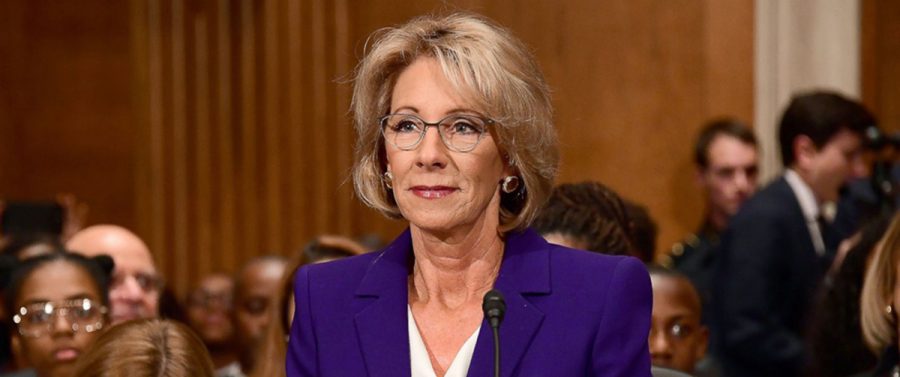Secretary of Education selected by one vote
February 8, 2017
Betsy DeVos became the new secretary of education yesterday when, for the first-time in history, the vice president cast the deciding vote. Mike Pence’s vote broke the Senate’s tie.
DeVos’ apparent struggle to answer many of the questions at her confirmation hearing, highlighted by her suggestion that guns can belong in schools, prompted senators at the hearing to ask for the confirmation to be pushed back and fueled the anger of public school supporters and teachers’ unions. Many see DeVos as one of the most controversial of Trump’s picks.
DeVos has a long history of supporting the privatizing and deregulating of the public-school system. Critics feel this could cripple the public education system.
She and Trump have both voiced their support of non-traditional schooling, such as vocational programs and for-profit universities. At the confirmation hearing DeVos struggled to answer questions about upholding the laws in place, such as the gainful employment law, to prevent for-profit colleges from committing fraud.
She lacks experience in handling a trillion-dollar loan budget, critics say, and has never needed to take out a student loan to pay for her schooling or that of her children. This perceived lack of experience with the public education system and higher education loans has raised concern about her ability to fulfill the duties of the position.
As with other Trump picks, DeVos is a conservative billionaire with a religious background. DeVos has donated around $200 million to the Republican Party over the years, and her family has indirect connections to a corporation that refinances student loans.
All of this, critics say, has made DeVos one of the most unusual and polarized of the Trump’s cabinet picks.
WSC Education Professor James Ossian said that he does not foresee much change to the higher education and public schools systems in Nebraska because DeVos’ plan of privatizing schools doesn’t make any sense for the mostly rural towns that make up the state.







